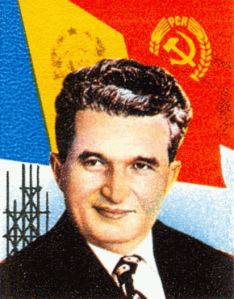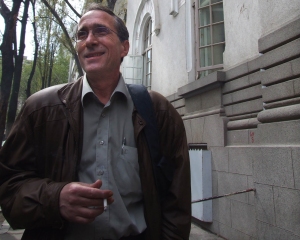Child of a Dictator
While reading the news today, I wondered…how does it feel to be the son of a former dictator, a leader so cruel that he was despised and executed? Valentin Ceausescu, the only surviving child of Nicolae Ceausescu still lives in Bucharest today, solely bearing the burden of his family’s destruction.
Nicolae Ceausescu was perhaps the most brutal dictator of the former communist bloc. He completely bankrupted the country for personal gain, and the 23 million citizens were extremely impoverished. The noteworthy feature of Romania’s political power in the 1980s was the cult of personality surrounding Nicolae and Elena Ceausescu. Following Ceausescu’s rise to power in 1965, Romanians enjoyed a short-lived period of liberalization, as the new leader sought to gain genuine popularity among his people. By 1971, however, the regime had reasserted its Stalinist legacy in all economic and cultural matters.
Meaningful reforms failed to materialize and Ceausescu maintained power with an ideological hold on intellectual and cultural life. The media portrayed Ceausescu as a “creative” communist and political leader whose thought and direction were the source of all national accomplishments. His time as president was known as the “golden era of Ceausescu.” The media praised him as the “guarantor of the nation’s progress and independence” and “visionary architect of the nation’s future.” In the 1980s, the personality cult was extended to other members of the Ceausescu family. Ceausescu’s wife, Elena, also held a position of prominence in political life. By the mid-1980s, Elena Ceausescu’s national prominence had grown to the point that her birthday was celebrated as a national holiday, as was her husband’s.
Meanwhile, Romania had a lack of basic goods, food rationing, and power cuts so that heat, electricity and hot water were luxuries. Ceausescu even banned contraception and abortion in order to create a population boom. Romania was full of orphanages of unwanted children and streets full of stray dogs. Today, the name Ceausescu is associated with suffering.
Twenty years ago, Valentin Ceausescu was arrested on Christmas Day 1989, the same day that both of his parents were executed by a firing squad. Valentin spent eight months in jail and then was released into a completely different country. He believes, along with many other Romanians, that a group of communists conspiring against his father and seeking personal gain orchestrated the revolution, and afterwards presented themselves as the “National Salvation Front.” The NSF repeatedly blocks information about what really happened in 1989.
How does it feel to be the child of a dictator? I asked this question once before, when I attended a lecture by Alina Fernandez in Virginia, illegitimate daughter of Fidel Castro. Although her parents were not married, Fidel Castro is the only father she will ever have and a huge part of her upbringing. Today she lives in Miami and is highly critical of her father’s regime, through the radio, a book, a movie, and lectures at places like my former university. When I heard her lecture I was struck by how distantly she spoke about Fidel, devoid of any emotion and seemingly well rehearsed, as if he were only a political leader and not a dad.
Valentin Ceausescu (61 years old), on the other hand, grew up in luxury but leads a quiet life in a suburb of Bucharest today. He has no limousine or bodyguard and rarely gives interviews. Despite trying to keep out of the limelight, I notice him in the news today. He is suing the producers of a play about his father now onstage at the Odeon Theater in Bucharest, on the grounds that he owns the rights to the name. The play, which opened in December, recounts the story of his father’s trial and execution. Valentin Ceausescu argues that he owns the name “Nicolae Ceausescu” which is registered at the National Trademarks Office. His attorney states that any book or movie with the name Ceausescu need to obtain the rights from the family. The funny thing is that there are 35 living Romanians with the name Nicolae Ceausescu. The producers of the play argue that the name of a historical figure cannot be the property of anyone.
I suppose Valentin is attempting to save his family’s name from further ridicule but surely this play cannot be the first time the story is retold. Romania still bears the marks of Ceausescu’s destruction, and memories of his regime are fresh in the minds of Romanians today. I am not sure which is the better path- to speak out critically like Alina Fernandez who is probably making a lot of money selling her upbringing in Cuba, or to keep out of the spotlight until the family needs defending, like Valentin Ceausescu. Twenty years after the death of his parents he is still trying to protect his family legacy, despite their undeniable cruelty. Certainly it’s not easy to be the child of a dictator…



